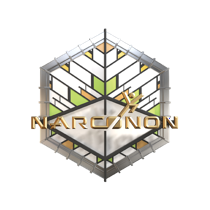A Meal Plan for Recovery—What Healthy Eating for Recovering Addicts Might Look Like

Because compulsive drinking and drug use causes significant harm to those afflicted, healing and recovering from years spent using drugs requires a daily commitment to healthy practices.
In order to start the process of recovery, one must enter a treatment center to effectively and safely get off of drugs and alcohol. Once someone has completed addiction treatment, the next phase of the recovery process begins with their daily commitment to healthier living.
A Healthy Diet – How Healing in Treatment Can Continue Outside Rehab
Much of the healing and recovery process that a recovering addict goes through occurs when one actively participates in treatment at a drug and alcohol rehab center. However, just as a struggling addict must go to treatment, a recovering addict must also take on a healthy approach to life after completing treatment.
Doing so begins with the individual’s diet.
As it turns out, there are foods that someone can eat that promote internal healing and wellness, and there are foods that someone can eat that do the opposite. While everyone should strive to eat well, doing so is especially important for people in recovery.
A recovering addict needs to heal their body from the damage that drinking and drug use caused it. Ongoing substance abuse takes a heavy toll on the body, harming it in ways that can take time to repair. After completing treatment, a recovering addict’s priority should be on healing and nurturing their body and making a commitment towards healthy practices and life choices in general.
Drinking and Drug Use Harms the Body – A Healthy Diet Helps Heal It
Substance abuse harms the body in many ways, but two are particularly relevant here:
- Drug use brings about negative lifestyle changes, such as poor diet, irregular eating, poor sleep, inadequate hydration, etc. Eating better once in recovery helps reverse the damage done by drug use.
- Drug use also robs the body of essential nutrients and energy. Maintaining a healthy diet in recovery helps replenish the body’s supply of essential nutrients and feeds the body the energy it needs to function correctly.
Part of addiction recovery means building up the body’s general health, natural defenses, and essential functions. Committing to healthy eating will help one feel better in general, but doing so can also have a marked effect on one’s mood and outlook.
A Look at Diet – What Helps and Why

Nutritionists recommend that recovering addicts maintain a well-balanced and diversified diet that is rich in whole foods from all five food groups. The goal here is to eat primarily whole foods and avoid processed foods. Fruits, vegetables, grains, proteins, and dairy should play a central role in one’s daily meals, and one should leave out processed, modified, or genetically altered foods.
While any degree of healthy eating will be beneficial in recovery, some foods receive special attention for their ability to boost brain health, alleviate uncomfortable symptoms, and speed the body’s natural healing process. People in recovery might consider:
- Whole foods that contain the amino acid tyrosine. Tyrosine is the precursor to the dopamine neurotransmitter, meaning tyrosine is essential in dopamine response. Someone in recovery is likely to have very low or depleted dopamine, but eating foods rich in tyrosine can boost dopamine levels and help remedy low energy, lack of motivation, apathy, and a foul mood. Foods rich in tyrosine include sunflower seeds, bananas, soybeans, pork, lamb, beef, cheese, and whole grains.
- Foods that are rich in L-glutamine. An essential amino acid, L-glutamine helps improve immune response and reduces sugar cravings. A recovering addict should avoid sugary foods as much as possible, as sugar has been linked to depression, anxiety, and other unpleasant psychological manifestations that could hinder the recovery process. Foods rich in L-glutamine include carrots, beans, Brussels sprouts, beets, papaya, beef, chicken, fish, eggs, and celery.
- Foods rich in antioxidants. Antioxidants are crucial in rebuilding damaged internal bodily systems. Given that drug use harms the body inside and out, recovering addicts should consider eating antioxidant-rich foods such as blueberries, strawberries, pecans, leaks, artichokes, and onions.
- Foods that boost GABA neurotransmitters. GABA neurotransmitters help promote a sense of calm and relaxation. Foods rich in GABA include kefir, cherry tomatoes, fava beans, soy, lentils, and shrimp.
- Foods that contain tryptophan. Similar to dopamine, tryptophan is another “feel good” neurotransmitter. Often sorely depleted as a result of drug use, recovering addicts should consider consuming foods such as cheese, pork, tuna, beans, turkey, lamb, oat bran, and lentils to help replenish their tryptophan levels.
Nutrition can help improve addiction treatment outcomes. And it is the right thing to do for one’s body and health in general. People recovering from addiction should eat well and be mindful of their diet to get the most out of their new life of sobriety and drug-free living.
Addiction Treatment—A Healthy Life Begins with Halting Drug Use

People can affect miraculous changes in their lives simply by choosing to eat better. Many people do significantly improve their lives each year by taking on new eating habits.
However, for someone who is actively using drugs and alcohol, it’s going to take more than a better diet to produce real and positive change in their lives. Better eating can undoubtedly help one recover, as recovering addicts benefit significantly from making healthy choices. But for someone who is using drugs and alcohol, they absolutely must seek addiction treatment as soon as possible.
Narconon’s goal is to rid the world of the scourge of drug addiction and to help people find sobriety and a totally drug-free life. Narconon offers a unique program that is designed to produce fantastic, life-changing results that last. If you know someone who is currently using drugs or alcohol or both, please contact Narconon today. Doing so will be taking the first step towards helping them effect positive change in their lives.
Sources:
- https://medlineplus.gov/ency/article/002149.htm
- https://www.todaysdietitian.com/newarchives/120914p44.shtml
- https://health.usnews.com/health-care/for-better/articles/2018-12-03/foods-that-are-good-for-addiction-recovery
- https://www.naturalnews.com/2018-09-15-how-sugar-increases-your-risk-for-depression-and-anxiety.html
- https://www.sciencedirect.com/science/article/pii/B978032354856400002X
Reviewed by Claire Pinelli, ICAADC, CCS, LADC, RAS MCAP


